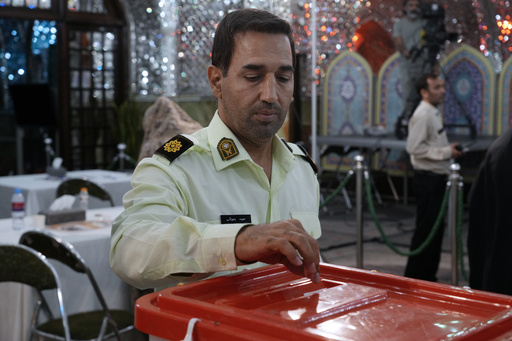Iran conducted a runoff presidential election on Friday, with low turnout seen in the first round of voting. Reformist candidate Masoud Pezeshkian appeared to lead over hard-liner Saeed Jalili in initial results, but the total voter turnout was unclear. Despite expectations of increased participation, there were reports of empty polling stations alongside modest lines in some areas. The polls closed after midnight following multiple extensions by authorities as is customary in Iran.
Many attributed the low turnout in the first round to various factors, including economic sanctions, security force crackdowns, and tensions over Iran’s nuclear program. Voters expressed concerns about the country’s international isolation and internal extremism, with a desire for improved relations with major nations like the United States. Pezeshkian campaigned on relaxing hijab enforcement and engaging with the West, while Jalili faced criticism for his hard-line views on the headscarf and reputation among Western diplomats during nuclear negotiations.
Supporters of Pezeshkian warned against a potential “Taliban”-style government under Jalili, who in turn accused his opponent of fear-mongering tactics. Both candidates sought to secure votes in the runoff, with Pezeshkian leading in the first round. The election aimed to fill the vacancy left by the late President Ebrahim Raisi, who passed away in a helicopter crash in May.
Despite calls for boycotts, the election proceeded without oversight from international monitors. The voting process was controlled by Iran’s Interior Ministry, raising concerns about transparency. Supreme Leader Ayatollah Ali Khamenei urged citizens to participate, emphasizing the importance of the election in determining the country’s future direction.
The election occurred amidst wider tensions in the Middle East, including the Israel-Hamas conflict. Iran’s actions in the region, such as missile attacks on Israel and support for militia groups, have raised concerns about its foreign policy direction. The outcome of the election could influence Iran’s stance on engaging with Western countries or opting for confrontation.
With millions of Iranians eligible to vote, the candidates vied for support across different age groups. The election showcased a mix of hope for change and concerns about the country’s trajectory, with voters making their decisions based on various considerations. The final results would shape Iran’s domestic and international policies under a new leadership.


